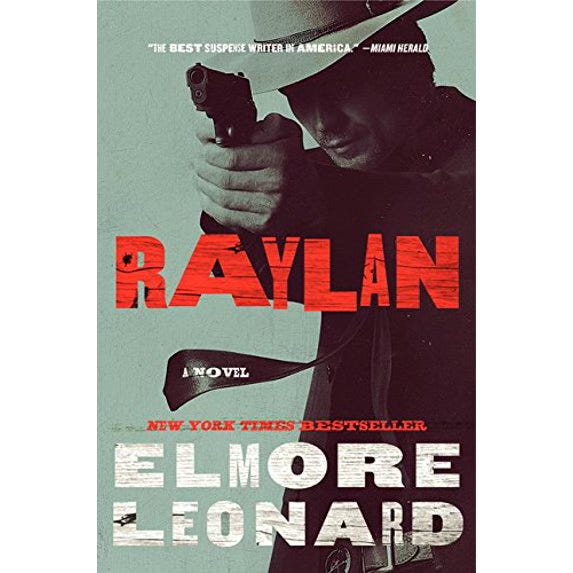Confucius, a Chinese philosopher who lived more than 2,500 years ago, wrote in the Analects — a collection of his teachings recorded by his students — “If names be not correct, language is not in accordance with the truth of things.” A modern translation is: “If the names are not correct, the words will not ring true.”
How did he come up with character names? He’d look for something that fits the time, the place, the way the character talks. He thought a name has to feel right or nothing else will.
“Names are important to me when I'm writing a book,” Dutch said in a TV Guide interview. Sometimes I might debate for days what to name a character; Bill or Bob or Billy Bob? …“If I give someone the wrong name he might not talk when he's supposed to, or be comfortable with himself. In Bandits, I called the main character Frank Matisse and he almost refused to talk. I changed him to Jack Delaney and I couldn't shut him up.”
Not being able to talk in a book by the dialog master could be fatal. If a character couldn’t talk, sometimes they were not merely renamed, they were bumped off.
Many names in Dutch’s novels were made up; they just had the right sound. I cherry-picked a few here: Cundo Rey (LaBrava), Roland Crowe (Gold Coast), Clement Mansell (City Primeval), and Louly Brown (The Hot Kid).
Other times they were the names of real people from whom he drew inspiration. Chili Palmer is the prime example. Dutch absolutely loved the name and said he simply had to use it. Chili in real life was the private eye partner of Bill Marshall, Dutch’s college chum (who also got a star turn as Marshall Sisco, Karen Sisco’s father in Out of Sight). But Chili, a former Mob associate, gave Dutch the absolute foundation for his namesake in Get Shorty. No other name ever did that. Of note, Chili was the only person Dutch had to pay to use their name. In Chili’s world, use of his name came with a fee.
Then there was Raylan, who would unseat Chili as Dutch’s favorite character. Raylan came out of the blue. Dutch was guest speaker at a sales conference luncheon at a book distributor convention sponsored by Western Merchandisers in Amarillo, Texas in June 1991. He recalled: "I remember standing between a Ninja Turtle and a Miss Texas from a few years back. Don't ask me why. But what I remember most is the young man sitting next to me on the dais during lunch. He introduced himself. 'Hello, Mr. Leonard, my name's Raylan Davis.'
I didn't even hear the last name, I just heard Raylan and knew I wanted to use it. I asked him, ‘How would you like to be the star of my next book?’”
That book was Pronto, and Raylan Givens would enjoy a long run in Riding the Rap, Fire in the Hole, the novel called Raylan, and the FX TV series Justified.
Dutch would often use names as a private nod or tribute to honor old friends, family, or colleagues. One notable example is Detroit Free Press Africa correspondent Neely Tucker, who became the Harper’s Weekly reporter in Cuba Libre. Publisher and friend Otto Penzler popped up as a member of the Afrika Korps in Comfort to the Enemy and in the next book as an escaped POW in Up in Honey’s Room. In his own family, Dutch named the character who aspired to be Public Enemy No. 1 in The Hot Kid after his first great-grandchild, Jack Belmont. Even I made it into a book by first name only, as Gregg, Marshall Sisco’s computer geek in Out of Sight.
These namings were all voluntary, totally of Dutch’s choosing. But there was another convention which I had mixed feelings about: auctioning off character names to raise money for charity to avoid writing a check. Dutch was constantly being hit up for donations, whether from his alma mater the University of Detroit or a myriad of charities that zeroed in on local celebrities.
Dutch made the best of this unholy practice and had his fun. Elliot Wilhelm, the mild-mannered director of the Detroit Film Theatre who bid $1,700, became the six-foot-six gay Samoan bodyguard in Be Cool, while Avern Cohn, United States District Court judge for the Eastern District of Michigan, was the winning bidder ($1,500) in a Michigan Opera Theater charity auction. Dutch made him a sleazy lawyer in Mr. Paradise.
There was one particularly poignant case, however. The parents of Anthony Antonelli, a Grosse Pointe Woods teen who was killed in a horrific car crash in 2002, paid $18,000 at an eye doctors’ conference to get their son’s name in an Elmore Leonard novel. Dutch gave him a good part in The Hot Kid as Tony Antonelli, the True Detective Mysterieswriter following Carl Webster around.
At the gaudy end of the spectrum was Compuware Corp. founder Peter Karmanos. He gave $44,000 in gifts to the Barbara Ann Karmanos Cancer Center and the Alzheimer’s Association to get his wife Danialle’s name in Road Dogs.Then Peter, not to be left out, paid $5,000 at another auction to get his name in. Dutch gave Danielle a major supporting role as an actress and widow that Foley and Dawn try to scam by channeling her dead husband, Peter, a movie producer whose spirit is pestering his wife.
There are many more name auction winners spread over Dutch’s last ten books, who bid far less. But it’s all good. Dutch wove names in so effortlessly in his novels and stories that unless you knew the backstory, you’d never suspect that commerce was at play. He made the name right, and without question his words rang true.





What about a guy with three names!?
I'm with Dutch! I can't write a character until he/she has a name I'm happy with.